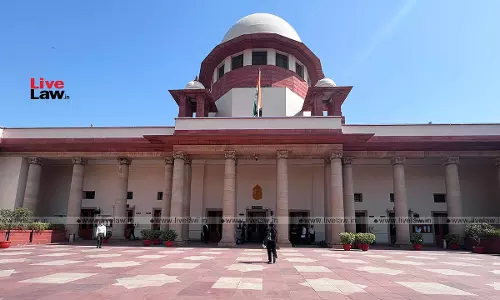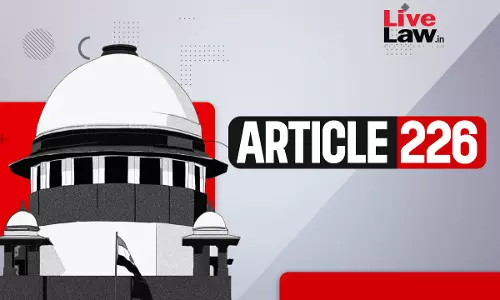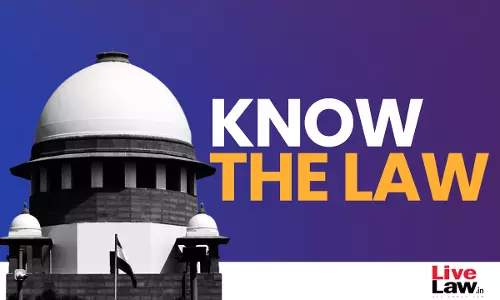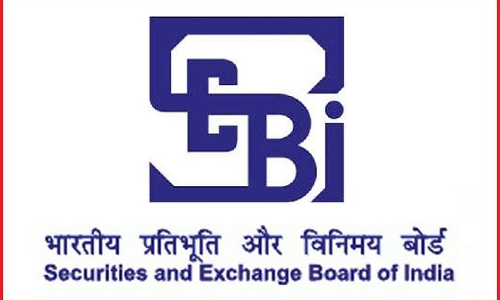Know the Law
“Recovery Evidence” Under Section 27 Of The Evidence Act- Questions & Answers By Justice V Ramkumar [Part-II]
Q.11 Whether a statement by the accused that the weapon discovered was (“the weapon with which he committed murder”), will fall under Section 27 which contains the words “whether it amounts to a confession or not” ?. Ans. No. The bracketed portion of the statement is not admissible in evidence. In para 10 of Pulukuri Kottaya v. Emperor AIR 1947 PC 67 – Sir John Beaumont,...
“Recovery Evidence” Under Section 27 Of The Evidence Act- Questions & Answers By Justice V Ramkumar [Part-I]
I N T R O D U C T I O N Any discussion on Section 27 of the Indian Evidence Act, 1872 will be incomplete without reference to Sections 25 and 26 of the Evidence Act. Section 25 prohibits proof of “confession” made directly to a “police officer” by an accused person. Section 26 interdicts proof of a “confession” made by an accused person while he is in the custody of...
Section 313 CrPC | 'Right To Remain Silent Not Be Used Against Accused' : Supreme Court Summarises 12 Principles
Recently, the Supreme Court, in a noteworthy judgment, while acquitting a woman accused of killing her own child and was convicted for murder and sentenced to life imprisonment, also decided the question of what may be required of the convict in her statement under Section 313 Code of Criminal Procedure (Cr.P.C).Citing extensive thread of precedents, the Top Court penned down the...
Principles Relating To Plea & Alibi & Delaying In Registering FIR : Supreme Court Explains
A Division Bench of the Supreme Court, comprising Justices Abhay S. Oka and Sanjay Karol, recently affirmed the conviction of 9 accused persons of the crime committed by them back in 1988. It may be relevant to point out that the bail was granted to the accused persons by the Supreme Court in the year 2012 and thus, now they have been directed by the Top Court to surrender...
Criminal Liability Of Transferee Company For Acts Of Transferor Company After Amalgamation : Supreme Court Explains
The Supreme Court recently(11 Sep) emphasized that a company's criminal responsibility is recognized when it can be attributed to the actions of individual employees, directors, or officials. This approach aligns with previous legal precedents, including cases such as Tesco, Meridian Global Funds, Standard Chartered Bank, and Iridium, where corporate criminal liability was recognized based...
Recent Important Judgments On Service Law - Appointments, Pension, Disciplinary Proceedings
Appointment and RTI mattersSupreme CourtAppointment Can’t Be Denied Citing Suppression of Material Facts When Employer’s Query Was VagueThe Court in State of West Bengal v. Mitul Kumar Jana 2023 LiveLaw (SC) 714, while adjudicating upon the allegations of suppressing information related to a criminal case during the application process, held that “For determining suppression or...
Principles For Issuing Writ Of Certiorari Under Article 226 : Supreme Court Summarises
In a recent legal development, the Supreme Court bench comprising Chief Justice of India DY Chandrachud and Justice J.B. Pardiwala summarised the cardinal principles governing the exercise of extraordinary jurisdiction under Article 226 of the Constitution, particularly concerning the issuance of a writ of certiorari.The judgment in this case Central Council for Research in Ayurvedic Sciences...
Whether “Recovery Evidence” By Itself Is Substantive Evidence
The answer to this question can be in the “negative” in the majority of cases and “positive” in certain limited category of cases. The celebrated Pulukuri Kottaya v. Emporer AIR 1947 PC 67 (Lord Wright, Lord Simonds, Lord Uthwatt and Sir John Beaumont), itself contains the answer to this question. Supposing the accused is having in his possession or is concealing in his room...
When Does An Order Become A Binding Precedent? Supreme Court Explains
The Supreme Court observed that its brief orders that are meant only for the purpose of closure of the controversy involved in a particular case and with a view to conclude the case, cannot act as a precedent for subsequent cases.The bench of Justices BV Nagarathna and PK Mishra made this observation while dealing with a contention raised in a batch of appeals that the judgment in Bangalore...
Essential Ingredients Of Section 504 and 506 Indian Penal Code : Supreme Court Explains
The Supreme Court recently held that for an offence of criminal intimidation to be made out under Section 506 (Punishment For Criminal Intimidation) of the Indian Penal Code,1860 it must be established that the accused had an intention to cause alarm to the complainant.A division bench of Justice B R Gavai and Justice J B Pardiwala observed:"A bare perusal of Section 506 of the IPC makes...
Supreme Court Summarises Principles On Adverse Possession
Supreme Court, in its recent decision of Government of Kerala & Anr. V. Joseph and Others discussed several principles concerning the adverse possession.At the outset the Court observed, “Possession must be open, clear, continuous, and hostile to the claim or possession of the other party; all three classic requirements must coexist- nec vi, i.e., adequate in continuity; nec clam,...
SEBI Introduces Alternate Dispute Resolution Amendment Regulations 2023
The Securities and Exchange Board of India (SEBI) issued a notification on July 3, 2023, introducing amendments to the Alternative Dispute Resolution Mechanism Regulations.These regulations may be called the Securities and Exchange Board of India (Alternative Dispute Resolution Mechanism) (Amendment) Regulations, 2023.Accordingly, respective amendments have been carried out in various...



![“Recovery Evidence” Under Section 27 Of The Evidence Act- Questions & Answers By Justice V Ramkumar [Part-II] “Recovery Evidence” Under Section 27 Of The Evidence Act- Questions & Answers By Justice V Ramkumar [Part-II]](https://www-livelaw-in.demo.remotlog.com/h-upload/2023/11/27/500x300_506320-questions-and-answers-by-justice-v-ramkumar.webp)






